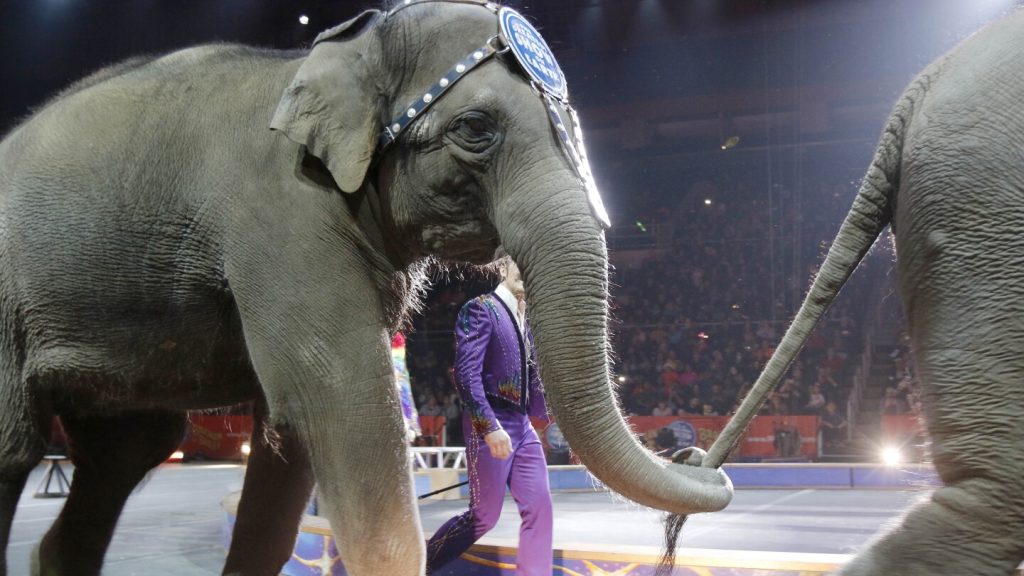According to a recent news article by the Associated Press, the state of Massachusetts has banned the use of elephants, lions, giraffes, and other exotic animals in traveling acts such as circuses. This law was signed by Gov. Maura Healey, with the goal of preventing the mistreatment of animals. Starting from January 1, traveling acts like circuses, carnivals, and fairs will be prohibited from using certain animals for entertainment, including lions, tigers, bears, elephants, giraffes, and primates. Exceptions to this ban include animals that live in zoos and those used in filming movies. Non-exotic animals like horses, chickens, pigs, and rabbits can still be exhibited.
The responsibility of adopting the new regulations falls on the Massachusetts Division of Fisheries and Wildlife. Enforcing the prohibition will be carried out by the state Office of Energy and Environmental Affairs along with state and local law enforcement officers. Civil penalties for violating the ban range from $500 to $10,000 per animal. Massachusetts becomes the 11th state to pass restrictions on the use of wild animals in traveling exhibits and shows, as reported by the Humane Society of the United States.
In recent years, the use of live animal shows has decreased. Major shows like the Ringling Brothers and Barnum & Bailey Circus no longer include elephants and other live animals in their acts. The Topsfield Fair in Massachusetts stopped displaying elephants following a municipal ban in 2019. Similarly, King Richard’s Faire, the largest Renaissance festival in New England, ended its exotic cat show in 2020. Preyel Patel, the Massachusetts state director for the Humane Society, applauded the new law for protecting animals from abusive training methods and prolonged confinement when forced to perform in traveling shows.
Advocates for the ban highlighted the case of Beulah, an elephant owned by a Connecticut zoo, who passed away in 2019. Beulah was at the center of a lawsuit by the Nonhuman Rights Project, which sought to move her and two other elephants to a natural habitat sanctuary. The lawsuit argued that the elephants had “personhood” rights, entitling them to the same liberty rights as humans. Despite the efforts of the advocacy group, the Connecticut Appellate Court ruled in favor of the zoo owner, Tim Commerford, stating that the group did not have legal standing to file actions on behalf of the elephants. Commerford defended the care provided to the elephants, denying claims of mistreatment and emphasizing the familial bond with the animals.
The new legislation in Massachusetts marks a significant step towards ending the exploitation of wild animals for entertainment purposes. Advocates hope that other states will follow suit to protect animals from harm and ensure their well-being in the face of entertainment industry practices. The ban on using exotic animals in traveling acts reflects changing societal attitudes towards animal welfare and the recognition of the rights and needs of non-human sentient beings. By instituting such regulations, states like Massachusetts are setting an important precedent for ethical treatment of animals in the entertainment industry.


